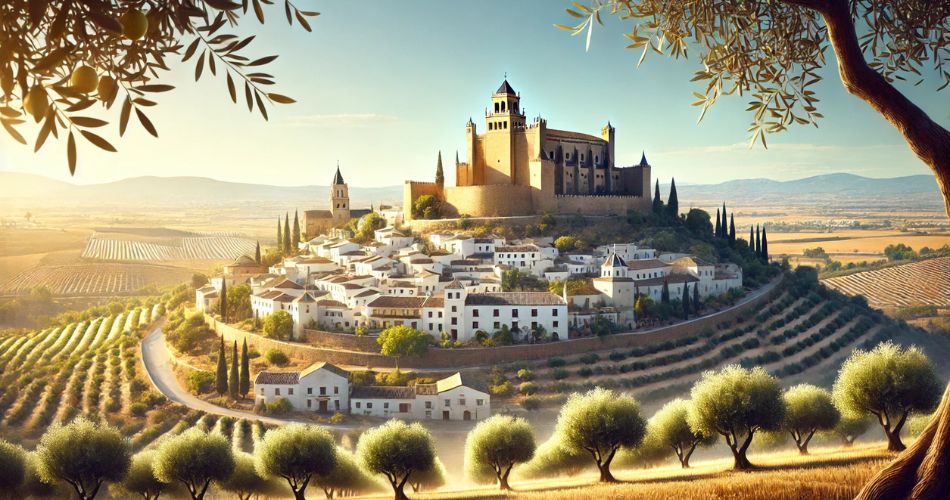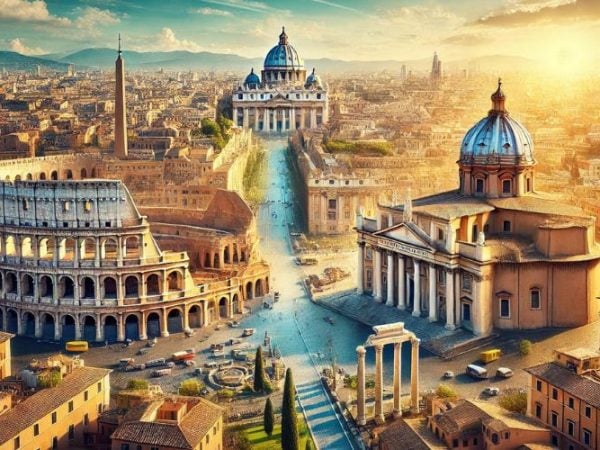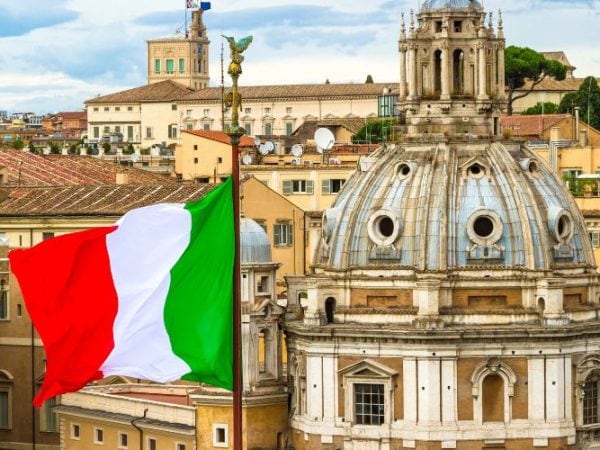Briefly
Spain is often associated with vibrant culture, passion, and a rich historical legacy. The bull represents strength and courage, while flamenco dance embodies emotional expression and intensity. The country’s landscapes, from the sunny beaches to the rugged mountains, symbolize the diversity and beauty of nature. The red and yellow of the Spanish flag symbolize the country’s unity and spirit, reflecting both the warmth of the sun and the courage of its people. Spain’s cultural tapestry, including its art, music, and festivals, embodies a sense of celebration and communal joy.
- Symbolism: passion, diversity, strength, courage, unity, celebration.
Spain in Dreams
Dreaming about Spain can reflect a desire for adventure or a yearning to explore new experiences and cultures. It may symbolize an inner call for passion and creativity, drawing from the country’s vibrant arts and traditions. From a psychological perspective, Spain in dreams can indicate a need for emotional expression or a longing for freedom and relaxation. The specific elements of the dream, such as Spanish landmarks or cultural events, can further tailor this symbolism to reveal personal aspirations or unresolved desires.
- Symbolism: adventure, creativity, emotional expression, freedom, relaxation.
See also our Free Dream Interpretation Tool
Spain in Myths and Folklore
Spanish myths and folklore are rich with tales of bravery, romance, and mysterious creatures. The legend of El Cid, a national hero, exemplifies themes of loyalty and honor. Folkloric creatures like the Basque Basajaun, a protective giant of the forest, highlight Spain’s connection with nature and its ancient traditions. The flamenco dance, with its origins in the Andalusian region, is steeped in mythical references and is often associated with the gypsy spirit, evoking themes of freedom and resilience.
- Symbolism: bravery, romance, loyalty, honor, nature connection, freedom, resilience.
Spain in Myths and Folklore
In Spanish folklore, there are numerous tales of legendary figures and supernatural beings that add layers of meaning to the country’s cultural identity. The tale of Don Quixote, although fictional, has transcended into folklore, symbolizing the eternal struggle between idealism and realism. Characters like Don Juan reflect themes of seduction and morality, often serving as cautionary tales. Furthermore, Spain’s rich tradition of festivals, like La Tomatina and Running of the Bulls, are rooted in historical and mythical origins, symbolizing communal spirit and the human confrontation with the wild and untamed aspects of life.
Spanish folklore also includes tales of creatures such as the Duende, mischievous spirits known to cause trouble in homes, or the Santa Compaña, a ghostly procession that serves as an omen in Galician folklore. These stories are not just entertainment; they convey moral lessons, societal values, and a deep connection to the enigmatic aspects of life. The folklore serves to keep Spain’s rich history alive and continually informs the cultural consciousness of its people.
- Symbolism: idealism, realism, seduction, morality, community, wildness, mystery, societal values.



